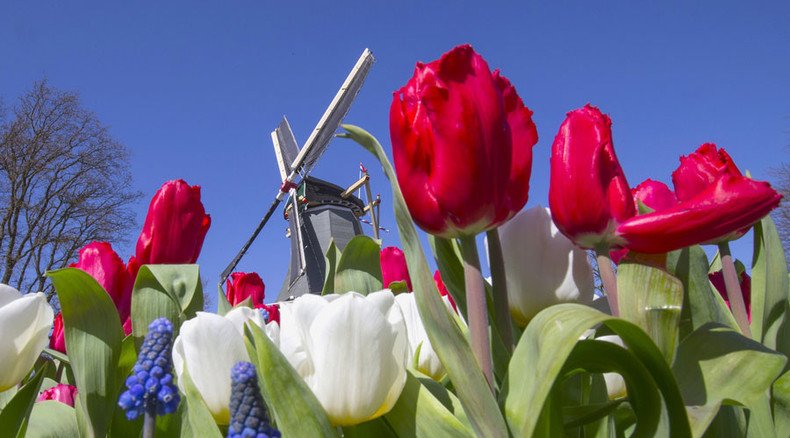Russia toughens up on Dutch flowers

Flowers from the Netherlands will now face closer scrutiny over pests and infections that threaten the Russian economy and agriculture, according to Russia's hygiene watchdog, Rosselkhoznadzor.
Moscow estimates its possible economic losses at $50 million if about 10 percent of imported flowers are diseased.
The Dutch kingdom is Russia’s biggest flower supplier (30,700 tons estimated at $225.4 million dollars in 2014) along with Ecuador.
In total last year, Russia imported 79,000 tons of cut flowers and flower buds worth $612.7 million.
READ MORE: Russia threatens to ban flower imports from the Netherlands
Starting Monday, Dutch flowers will only be allowed in Russia if they pass the necessary lab tests of their microbiological condition.
According to the watchdog, more than 50 percent of the diseased imported flowers – 310 cases out of 606 – were of Dutch origin.
One of the key reasons for the limitation is not the quality of flowers as such, rather the lack of quality control from countries that export them.
Today, it is enough in Russia to provide a guarantee by public authorities on flowers’ compliance with domestic and international requirements. But back in 2007, the Dutch authorities acknowledged the absence of fields free from flower thrips (minute insects), and stopped issuing microbiological certificates for cut flowers.
As a result, the Dutch flowers are delivered to Russia via other EU countries: Bulgaria, Czech Republic, Hungary, Latvia, Lithuania, Poland and Slovakia.
Each batch of flowers should comply with the safety standards of Russia and the Eurasian Economic Union (a Russia-led economic bloc uniting Armenia, Belarus, Kazakhstan and Russia, with Kyrgyzstan on the way). However, according to Rosselkhoznadzor, it would often find imported flowers of poor quality, with fake or invalid certificates.
The new ruling doesn’t imply a full import suspension, but the market expects that prices to hike dramatically, the assortment to fall, with all these measures unlikely to shield Russia.
The Russian watchdog says the EU is ready for negotiations, as Latvia has already offered to reconsider its cooperation.












